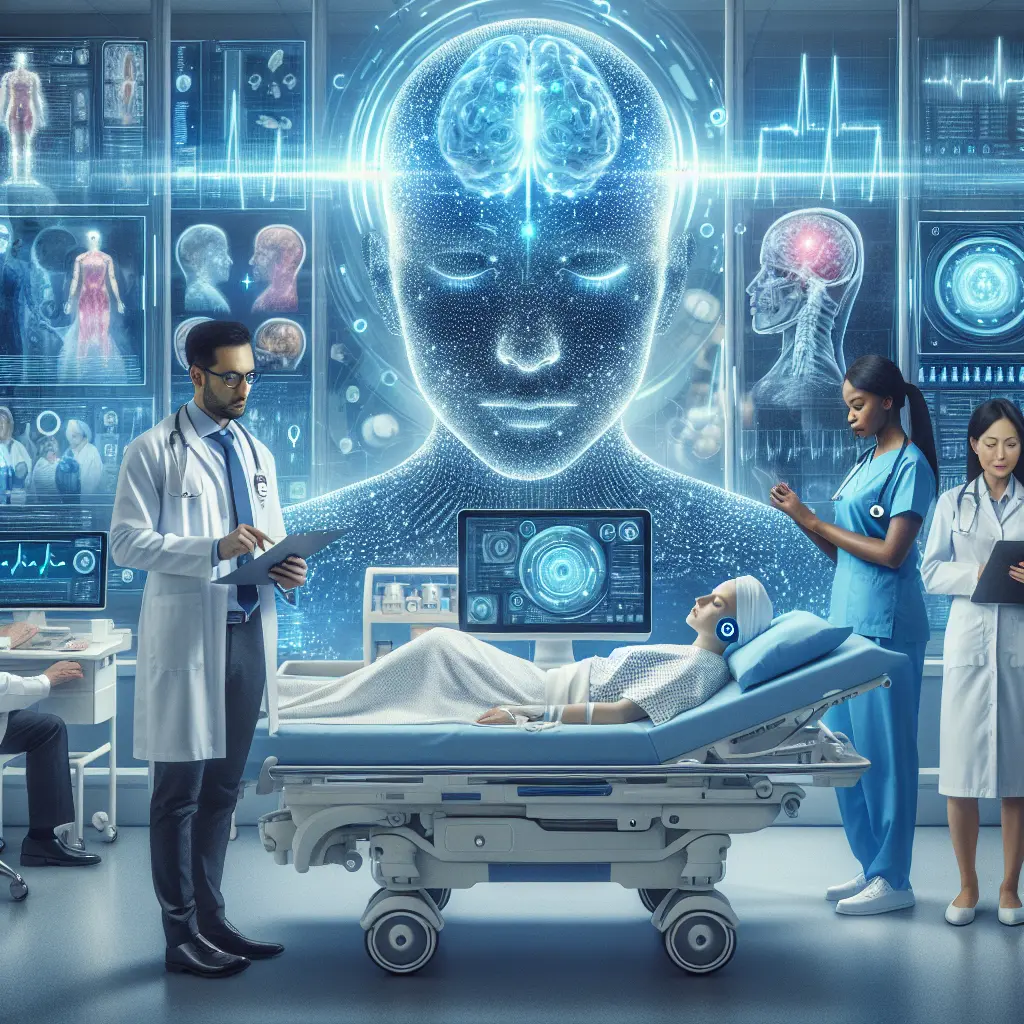
Transforming Healthcare with AI-Driven Predictive Analytics
In the rapidly evolving field of healthcare, artificial intelligence (AI) is redefining how we approach early disease detection and diagnosis. AI in predictive analytics plays a pivotal role in transforming healthcare delivery by enabling earlier and more accurate identification of diseases. This innovation in predictive health technology is not just about detecting illnesses earlier; it’s about changing the paradigm of healthcare altogether.
The Impact of AI on Disease Detection
With AI for disease detection, healthcare providers can harness the power of machine learning to analyze vast amounts of data, uncovering patterns and insights that were previously unimaginable. AI-powered diagnostics allow for more precise early diagnosis, which is crucial for improving patient outcomes and reducing the burden on healthcare systems. Predictive modeling offers new possibilities for identifying potential health issues before they escalate, allowing for timely interventions and personalized treatment plans.
Leveraging Healthcare Predictive Analytics
Healthcare predictive analytics tools leverage vast datasets to provide actionable insights, enhancing the capabilities of AI in medical diagnostics. This integration signifies a shift towards proactive healthcare, where predictive analytics becomes an essential part of routine medical practice. By utilizing AI-driven disease prediction models, healthcare professionals can focus on prevention rather than cure, paving the way for innovative healthcare solutions.
Exploring AI Innovations in Healthcare
As we delve into the nuances of AI healthcare innovations, it becomes evident that the synergy between artificial intelligence and healthcare data analytics is reshaping the future of medical care. This journey into AI for health monitoring and early disease identification is just beginning, promising a future where predictive analytics tools enhance every aspect of patient care. The subsequent sections will explore these advancements in detail, illustrating how predictive health technology is setting new standards in medical diagnostics.
The Role of AI in Early Disease Detection
AI in predictive analytics leverages machine learning algorithms to analyze vast datasets, identifying patterns and insights that traditional methods might overlook. This capability is crucial for early disease detection, allowing healthcare providers to intervene sooner and tailor treatment plans to individual patients. According to a recent report, specialized AI models tailored for healthcare have demonstrated superior performance in domain-specific tasks compared to larger generalist models, highlighting AI's potential to excel in nuanced medical diagnostics.
Overcoming Challenges with AI-Driven Diagnostics
Despite the promise of AI-powered diagnostics, challenges persist. A notable example is the performance of large language models like ChatGPT in medical settings. Research indicates that these models often provide incorrect answers or miss critical information when presented with complex medical scenarios. This underscores the importance of refining AI models to ensure accuracy and reliability in clinical environments.
Furthermore, the use of AI chatbots in hospitals has been criticized due to their tendency to make hasty diagnoses without adhering to established guidelines, potentially putting patients at risk. As such, healthcare professionals must exercise caution and consider integrating AI as a supportive tool rather than a standalone diagnostic solution.
Success Stories and Innovations
Despite these challenges, successful implementations of AI for disease detection are paving the way for future innovations. For instance, a new AI tool developed for predicting chronic pain in cancer patients has shown an impressive 80% accuracy rate. This tool enables doctors to identify patients at risk and implement preventive measures, illustrating how predictive analytics tools can enhance patient care.
Moreover, initiatives like the Anthology Fund, launched by Anthropic and Menlo Ventures, aim to support AI startups focusing on healthcare innovations. This $100 million fund encourages the development of cutting-edge solutions that could redefine early diagnosis with AI and predictive health technology.
The Future of Predictive Modeling in Healthcare
The future of predictive modeling in healthcare is promising, with continuous advancements in AI-driven disease prediction models. These models enable healthcare providers to transition from reactive to proactive care, focusing on prevention and early intervention. By analyzing patient data and identifying potential health issues before they escalate, AI for early diagnosis holds the potential to significantly reduce healthcare costs and improve patient outcomes.
Engaging with AI Healthcare Innovations
As healthcare professionals and enthusiasts navigate this evolving landscape, it is essential to stay informed about the latest AI healthcare innovations. Engaging with resources such as webinars, conferences, and academic journals can provide valuable insights into the potential and limitations of predictive analytics in healthcare.
Additionally, fostering collaborations between tech companies and healthcare providers can drive further innovation and improve AI-powered diagnostics. By sharing data and expertise, stakeholders can develop more robust predictive analytics tools that cater to diverse medical needs.
Conclusion: Embracing a Proactive Healthcare Paradigm
In conclusion, AI in predictive analytics is set to redefine early disease detection, offering unprecedented opportunities for improving patient care. Despite current challenges, the potential benefits of AI-driven disease prediction are immense. By embracing a proactive healthcare paradigm centered around early diagnosis with AI and predictive health technology, we can pave the way for a future where healthcare systems are more efficient, cost-effective, and patient-centered.
As we look ahead to 2024 and beyond, the integration of artificial intelligence in healthcare promises a new era of medical diagnostics that prioritizes prevention over cure. Engaging with this technology thoughtfully and responsibly will be key to unlocking its full potential and ensuring that it enhances every aspect of patient care.
Let's continue this journey together, shaping a future where predictive analytics and AI not only detect diseases early but redefine what is possible in patient care. Stay curious, stay engaged, and keep pushing the boundaries of innovation.
Author: Rachel Morrison